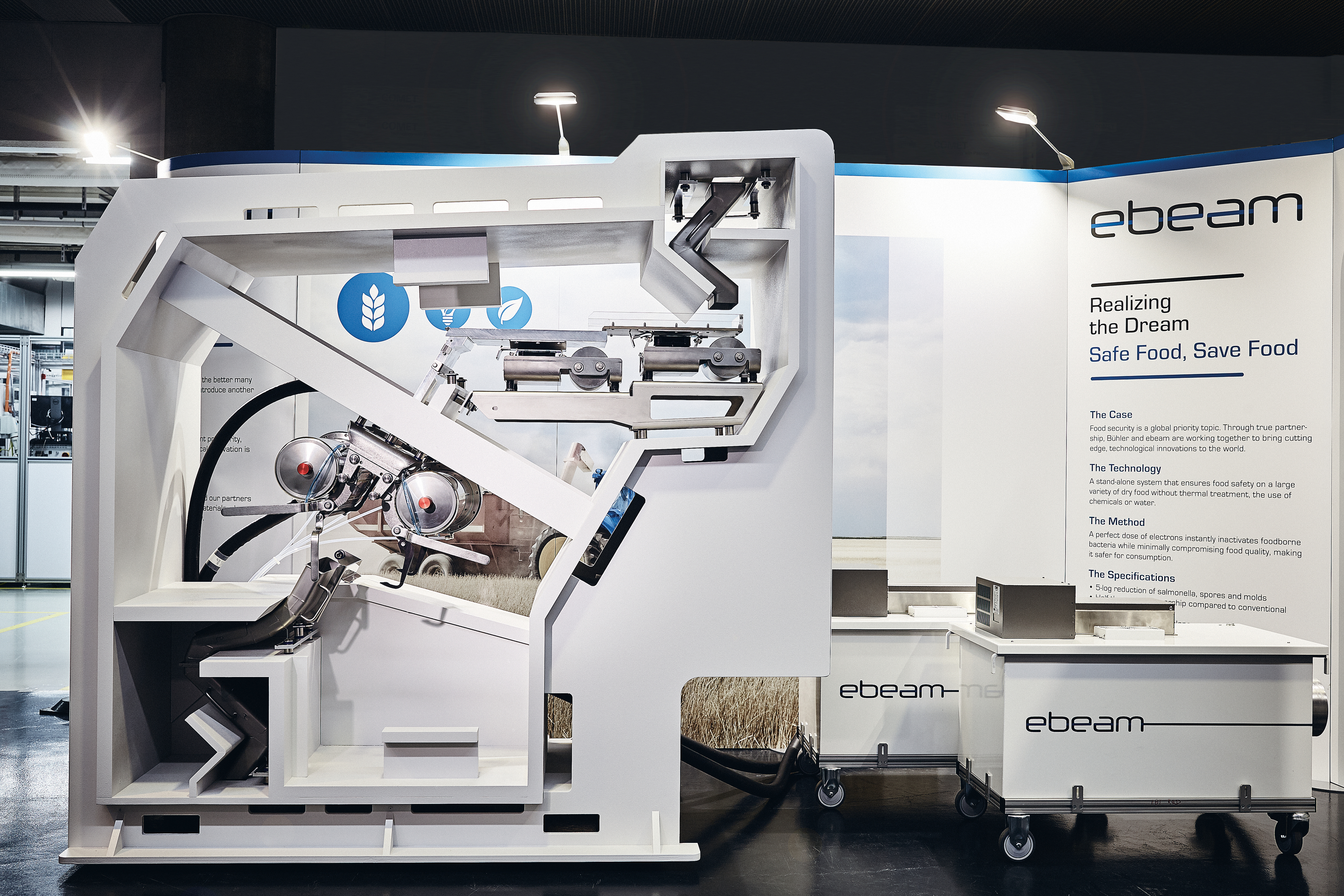In 2050, according to UN forecasts there will be about 9.6 billion people on earth – 30% more than today. To be able to feed them, food supplies must become more secure and food losses need to be avoided. In the future, ebeam is to be used to prevent losses from bacterial infestations on granular foods, such as wheat. The ebeam way of doing this is efficient, green and resource-conserving.
EXPLORE. Business development
ebeam takes aim at bacteria on dry foods.
Hunters, gatherers, subsistence farmers – for them, the paths from finding or growing food to eating it are short. But in our modern world, food travels a long way before it is consumed. It is harvested, transported, processed, refined, packaged, distributed and stored. Losses are bound to occur along the way. Yet, considering the growing world population, they are an unnecessary waste. Much would already be accomplished if foods could be treated more safely and resource-efficiently to extend their life. This is precisely where the partnership between the COMET Group and Bühler comes in.
The ebeam team and Bühler, the world's leading vendor of industrial solutions for food processing, have since 2015 been working on an innovation using ebeam to inactivate bacteria on dry foods such as spices, rice, corn and wheat grains. Requiring no heat treatments or chemicals, the method safeguards the quality and flavor of foods and lowers resource consumption. “The ebeam-based system is substantially smaller than existing solutions. It consumes significantly less energy, and our customers can sharply reduce their environmental footprint,” explains Nicolás Meneses, food expert and project manager at Bühler.
 Developed in record time together with Bühler: the prototype of a compact ebeam application for the microbial inactivation of dry foods.
Developed in record time together with Bühler: the prototype of a compact ebeam application for the microbial inactivation of dry foods.
“In our partnership with Bühler we have gone all out to drive our joint solution forward rapidly, flexibly and with great commitment,” says Charles Flükiger, President of the ebeam segment at the COMET Group. With success, as this business development project is already bearing very tangible fruit. Just 16 months after the launch of the partnership, it has produced two patents and the prototype for a compact ebeam application. The innovative concept has proven itself in tests on more than 20 foods. The first testing in a real-world environment will be done in 2017, to demonstrate that the new solution meets the quality and safety requirements under operational processing conditions. The tests will also provide concrete data on throughput, costs and the commercial benefit. To take the new application to market readiness will require further steps: The system needs to be calibrated for different types and forms of dry food, and regulatory authorities in various countries still need to be brought on board. The first field test in 2017 will be conducted with the food trading and processing company Kündig. The teams at ebeam and Bühler are eagerly awaiting the results.



